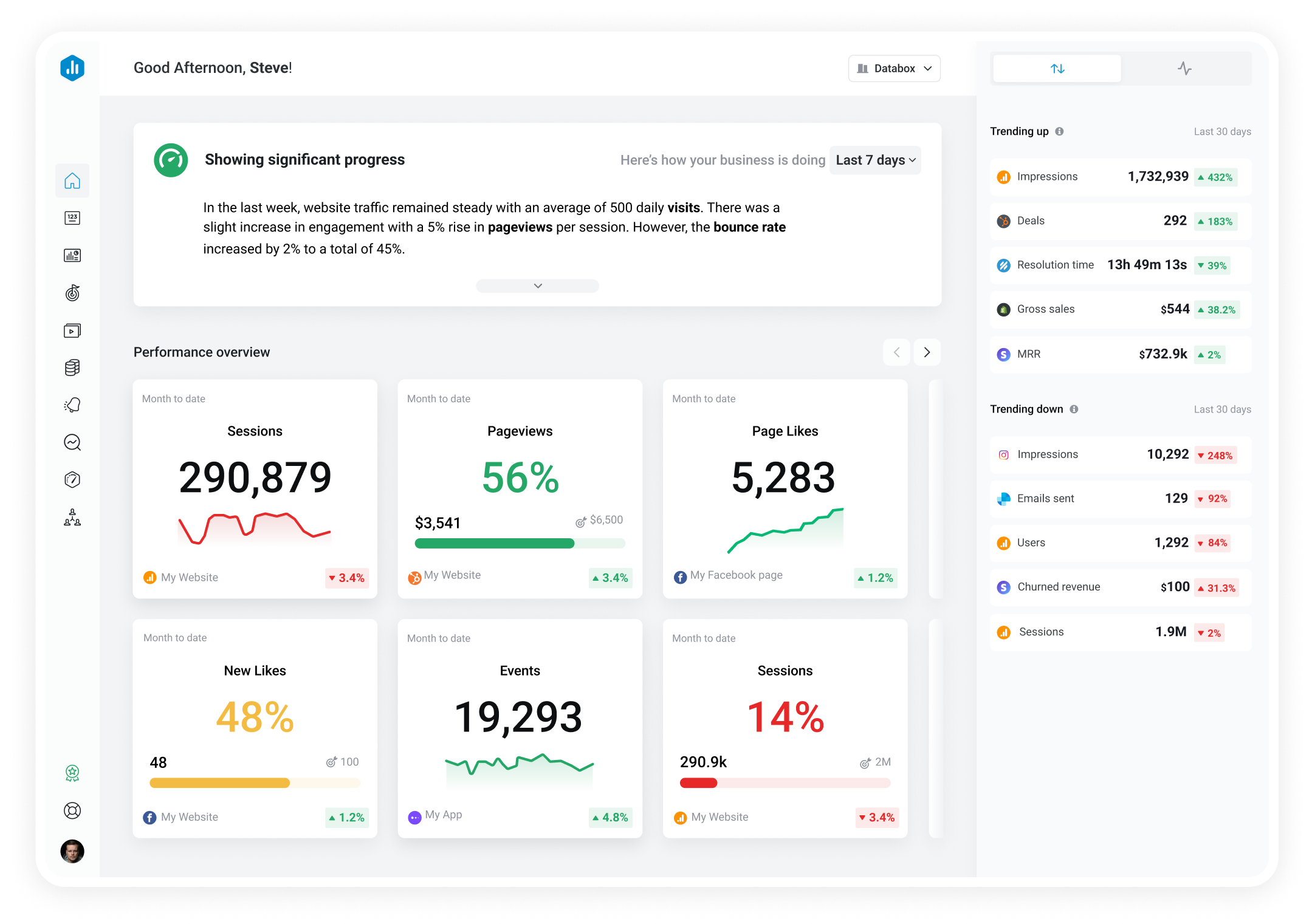Track all of your key business metrics from one screen
GET STARTED
 QuickBooks
Balance by Credit Cards (Cash)
QuickBooks
Balance by Credit Cards (Cash) Balance by Credit Cards is a financial metric in QuickBooks that shows the total amount owed on credit cards as of a given date, including both current and past due balances.
With Databox you can track all your metrics from various data sources in one place.

Used to show comparisons between values.
Databox is a business analytics software that allows you to track and visualize your most important metrics from any data source in one centralized platform.
To track Balance by Credit Cards (Cash) using Databox, follow these steps:
 Goals
Goals Scorecards
Scorecards Metric Digest
Metric Digest Metric Builder
Metric Builder Data Calculations
Data Calculations Performance Screen
Performance Screen